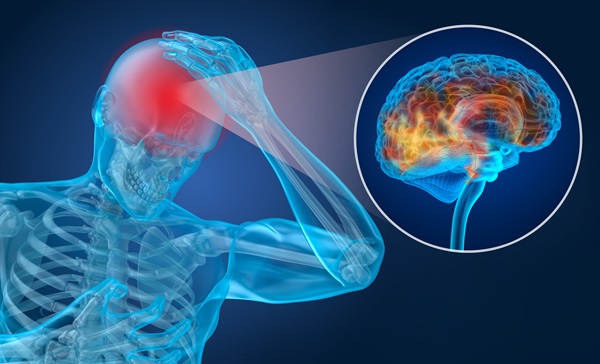A Maine car accident lawyer explains what drivers need to know about concussions
Car accidents frequently result in serious injuries, with concussions being among the most common. Recognizing the widespread impact of these injuries, the Brain Injury Association of America has designated September 20 as National Concussion Awareness Day to raise awareness and promote proper treatment.
“Our vision is that those suffering the effects of mild traumatic brain injuries feel supported by their community and feel empowered to share their story, connect with one another, and act to raise global consciousness of the concussion epidemic,” according to the annual event’s website.
How Common Are Concussions?
The short answer? They're very common. According to head injury data compiled by the Centers for Disease Control and Prevention (CDC), an estimated 1.7 million to 3 million people suffer concussions each year.
Sometimes called mild traumatic brain injuries (mTBIs), concussions are anything but mild. They often have serious, long-term consequences, including chronic pain, frequent headaches, and cognitive difficulties that can affect someone’s ability to think and speak clearly.
How Often Do Car Accidents Cause Concussions?
Car accidents have long been one of the leading causes of concussions and other brain injuries. In particular, roughly 17 percent of concussions occur due to car crashes. So, based on the CDC head injury data, that means roughly 300,000 to 500,000 people sustain a concussion each year in a car accident.
How Do Car Accidents Cause Concussions?
The significant force involved in many car crashes frequently leads to concussions. When a collision occurs, drivers and passengers are often thrown forward or backward, causing the head to hit a surface inside the vehicle or jerk sharply in one direction.
Some of the most common types of accidents linked to concussions include:
- Rear-end accidents
- Head-on collisions
- T-bone crashes
- High-speed impacts
What Are Common Concussion Symptoms?
After a car accident, it’s important to be aware of the warning signs of a concussion. Common concussion symptoms include:
- Dizziness or trouble with balance
- Nausea or vomiting
- Memory issues or difficulty focusing
- Feeling unusually tired or struggling to stay awake
- Severe headaches lasting for hours
- Sensitivity to noise or bright lights
If you notice any of these symptoms, don’t ignore them. A doctor should evaluate you right away to determine whether you have a concussion or another type of serious brain injury. Your health could be at risk, so seek immediate medical care after your car accident.
In addition, visiting a doctor right away creates an official medical record of your head injury. This documentation can be critical when you pursue financial compensation for your accident and serves as clear evidence that the collision caused your concussion.
How Do You Treat A Concussion?
Medical treatment options for concussions often depend on the severity of the injury. To start, doctors often use imaging tests such as MRIs, CT scans, or X-rays to diagnose a concussion.
Once your concussion has been diagnosed, some of the common medical treatments include:
- Monitoring patients for 24 to 48 hours in the hospital to make sure their concussion doesn’t develop into a more serious brain injury.
- Prescribing pain medication to manage severe, frequent headaches.
- Advising patients to rest in a quiet, dark room for the first 48 hours after the injury. This means no video screens, loud noises, or bright lights.
- Gradually reintroducing light physical activity after two days of complete rest.
Other treatment options may exist depending on the severity of your concussion, whether you have any pre-existing medical conditions, and other factors. Doctors and medical professionals know best. Follow their advice. That way, you can increase your likelihood of a full recovery and not jeopardize your concussion injury claim by not following your doctor’s instructions.
What Is The Average Settlement For A Concussion?
The value of a concussion settlement can vary significantly depending on the specifics of the case, such as the severity of the injury, the extent of medical treatment needed, and the long-term impact on the victim's life.
In Maine, where a fault-based car insurance system exists, the at-fault driver and their insurance provider are responsible for covering accident-related expenses. If you sustained a concussion due to another driver’s negligence, you shouldn’t be responsible for those costs.
Instead, the at-fault driver's insurance company is typically liable for compensating you for both your immediate medical expenses and any future costs associated with your injury. This can include treatment, lost wages, rehabilitation, and other damages.
Pursuing A Claim for Damages
Claims involving concussions often quickly turn into complicated legal cases. Why? Partly, it’s because there’s often a lot of money at stake, especially if you have long-term medical issues due to your mild TBI. And rather than simply paying you the money you deserve, most insurance companies prefer to fight and deny such claims to protect their profits.
This is why it’s critical that you have an attorney on your side who knows how to take on insurance companies and win. An experienced Maine car accident lawyer at The Law Offices of Joe Bornstein can help you better understand all the potential legal options available to you.
Our settlements and verdicts speak for themselves, including a $3.75 million settlement for a car accident injury victim in Maine. Make your case matter. Contact us and schedule a free case evaluation with a Maine car accident attorney who will fight for your rights. We have seven offices conveniently located throughout Maine, and we work on a contingency fee basis. That means you only have to pay us if we secure a financial settlement or verdict for you.




